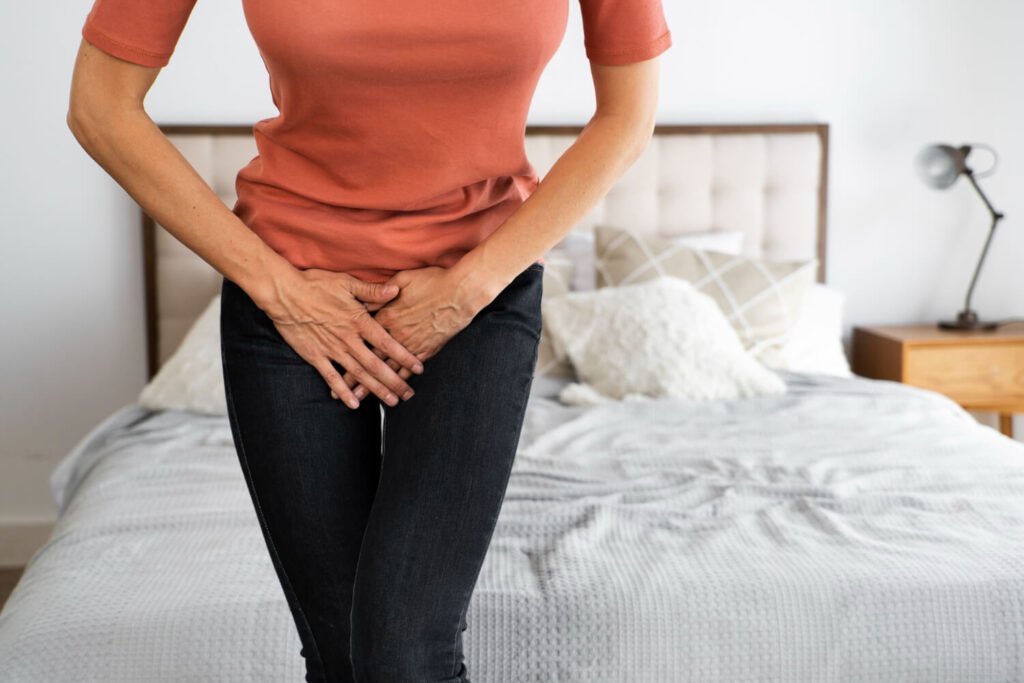Cervical or vaginal itching. What can be its causes and symptoms and its home remedies?
The vagina is one of the most sensitive organs of the female body. Vaginal itching is a common problem among women of all ages. Cervical or vaginal itching is usually caused by a variety of infections. It is also called vaginitis. This can cause pain, swelling, and bruising. Low estrogen levels and certain skin infections after menopause can also cause vaginitis.
Signs and symptoms of vaginal itching
- Itching near the vagina
- the scorching feeling while urinating.
- Sexual intercourse will cause significant agony.
- The vaginal tissues become irritated.
- Vaginal discharge will be thick, thin, or opaque.
- The discharge from the vagina will smell nasty.
- The region around the vagina will be crimson, extending to the thighs.
- The vaginal tissue will be dry.
Causes of vaginal itching
Echinacea may induce bacterial vaginitis because to an overgrowth of germs in the vagina, disrupting the bacterial balance.Caused by factors such as poor cleanliness, changes in the feminine gender, the use of contaminated water, hormonal changes, and other feminine interactions.
yeast Infection
The vaginal region typically includes oral bacteria, but when fungal bacteria proliferate, yeast infection arises in the vagina. This illness is also known as candidiasis.
Trichomoniasis
Echinacea in the vagina can potentially be caused by an infection with the parasite Trichomonas vaginalis. This parasite is mainly spread sexually. This parasite is infected during intercourse.
Sexual Transmitted Disease (STD)
Echinacea in the vagina may also be caused by sexually transmitted illnesses like chlamydia and gonorrhea.
Skin irritation.
The friction of tight garments might irritate the vagina. Echinacea can also be caused by excessive moisture, wet underpants for an extended period, or friction.
Allergy
Echinacea can occur as a side effect of using soaps, detergents, latex or personal care products.
Hormonal changes
The vagina becomes dry due to menopause, pregnancy or hormone therapy, which can also cause echinacea.
Skin diseases
Skin diseases such as sclerosis or eczema can cause itching around the vagina.
Home remedies for vaginal itching
If this condition is not treated regularly, it may worsen. However, if you do not address this unpleasant issue, painful symptoms may develop later. However, certain home treatments might help you resolve this issue.
Yogurt with Honey
Yogurt is an excellent probiotic for avoiding vaginal irritation and burning.A box of yogurt combined with honey can treat both yeast and bacterial infections. Honey contains natural antibacterial and antifungal effects. If you use it once a day, you’ll be done with it shortly. If you take it twice a day, you will notice effects soon.
Apple cider vinegar
Apple cider vinegar may solve any problem like magic. It possesses strong anti-bacterial and anti-fungal effects. Helps to reduce inflammation. This vinegar is also excellent for maintaining the pH balance of the vaginal skin. Take a teaspoon of apple cider vinegar with a glass of water every day.
Tea Tree Oil
Tea tree oil, which is high in antifungal, antibacterial, and antiviral properties, effectively relieves vaginal irritation and burning. You can apply 2-3 drops of tea tree oil to the area around the vagina. It also helps to get rid of vaginal yeast infections.
A basil leaf
Basil is a very helpful herb. It has potent antibacterial, antifungal, and anti-inflammatory properties. To relieve vaginal itching and burning sensations, boil some basil leaves in water. Then rinse it with cold water. Apply this medicine 2-3 times a day.
Cold water
Cold water can provide rapid relief from itching.You can use ice cubes, ice bags, or clean cotton towels to lessen the inclination of burning and itching. Use this medicine three to four times each day.
How to prevent this problem?
- To avoid vaginal itching and preserve vaginal health, one should practice good cleanliness and wear breathable underwear.
- Cotton underwear and loose garments are ideal for reducing perspiration and friction.
- Protected intercourse can help reduce vaginal itching.
- Clean the vagina with light soap and water.
- Vaginal sprays should be avoided.
- Do not apply cosmetics in the vagina.If you have diabetes, you must regulate it
- After all, you should maintain good hygiene by changing your underwear regularly during the menstrual cycle.
There are several possible reasons of cervical or vaginal itching. Vaginal itching may be avoided in many situations by practicing good hygiene and being aware of the risk factors. You should see a doctor for an appropriate diagnosis and treatment plan to promote a healthy and pleasant environment in and around your vagina.

